How to Grow Organic Papaya at Home: Expert Shares Easy Gardening Tips
Want to grow papaya at home? Terrace gardener Mythreyan N M from Chennai grows several types of vegetables and fruits, including papaya, in his 1200 sq ft terrace.
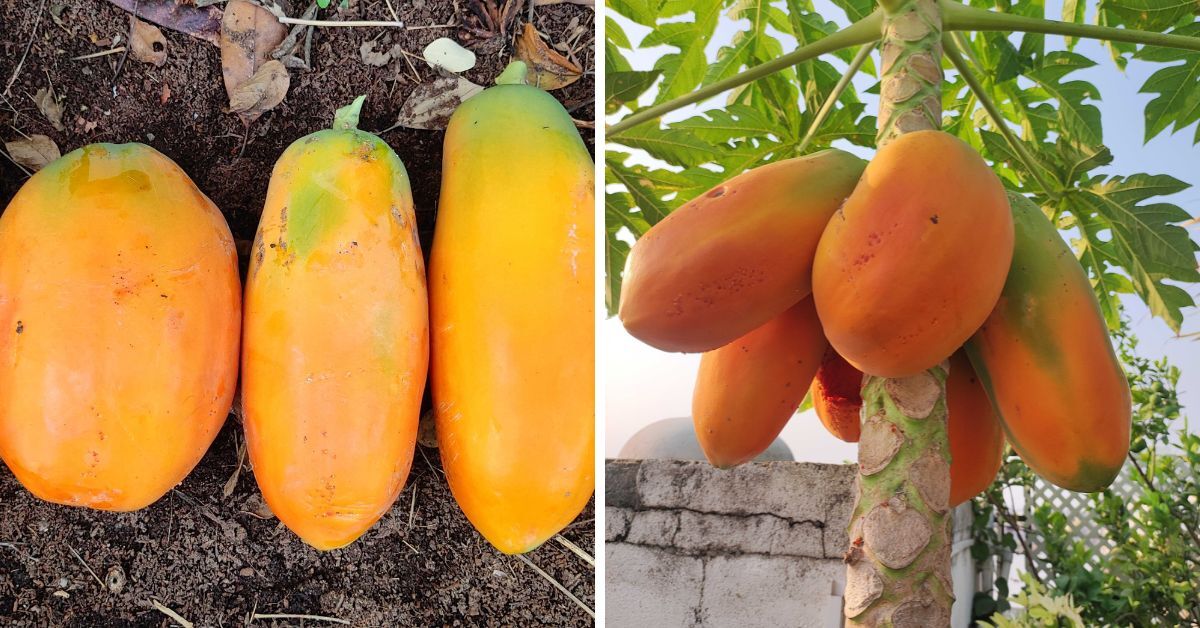
In 2013, Chennai-native Mythreyan N M put together a garden on his 1200-square feet terrace. His only aim was to let his children know where the food they eat comes from and how to grow them.
He started with a few seasonal vegetables and later expanded to fruits, flowers and other trees. Today, apart from a fully-fledged terrace garden, he also owns a garden store in Chennai which sells items for setting up a terrace garden. The store also has a wide collection of seeds, seedlings and organic fertilisers.
“All varieties are grown in grow bags, drums, pots and planter boxes. We upgrade the garden every year with a new stock of plants and pots,” says the owner of one of the finest terrace gardens in Chennai.
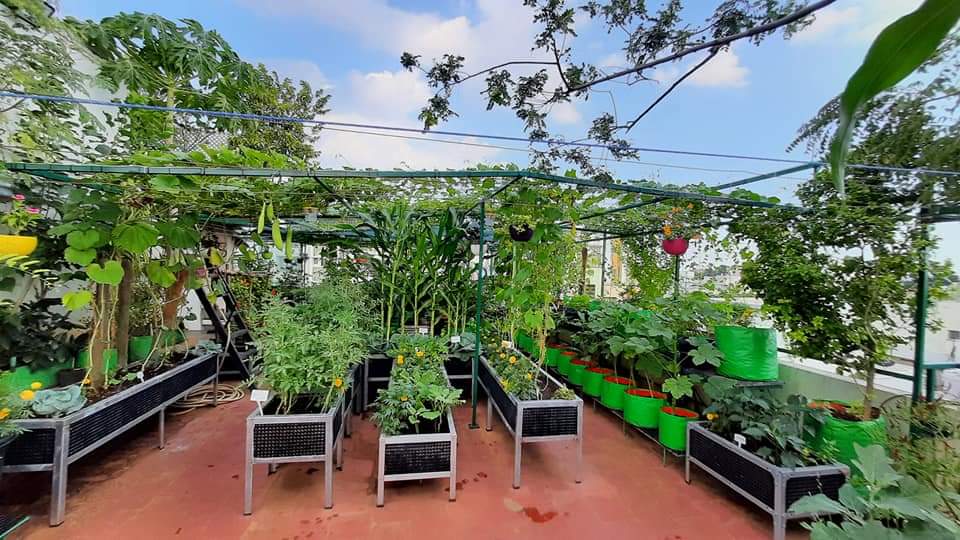
The store sells cow dung, various potting mixes, grow-bags, biofertilizers, neem oil, neem cake, cow-dung cake and other miscellaneous items that are useful for amateurs and seasoned terrace gardeners.
“Some of my friends are also associated with gardening and we take care of it together. The harvest is shared among our families. The store is also run by all of us,” says Mythreyan who works in a multinational company.
He also shares that the first three years in farming were quite challenging. “Trial and error method works well in farming, at least for me. Don’t lose hope even if the initial harvest is little. It will increase in time.”
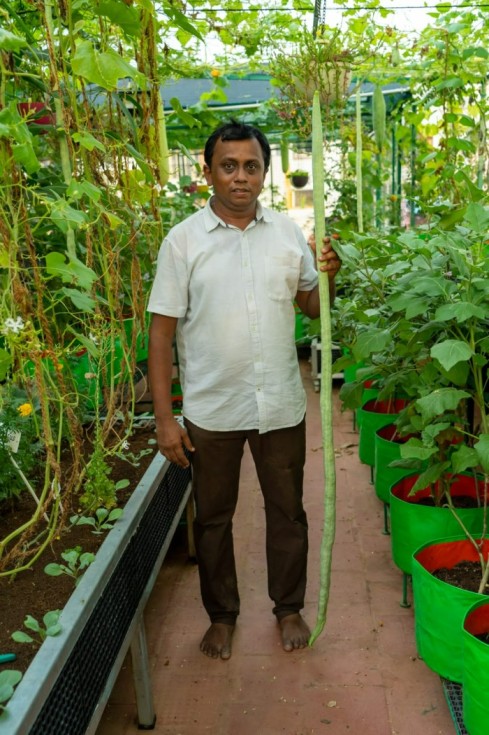
Several types of fruits are cultivated on the terrace, majorly inside drums. This includes chikoo, mulberry, raspberry, rambutan, lemon, papaya, mango and many more. “Out of all these, papaya was grown naturally. The seeds are possibly disposed of by birds and the trees grew so healthy. I planted the saplings in a drum and took good care of it. Now they bear big and sweet papayas, all through the year,” explains the 43-year-old gardener.
Papaya is a healthy tropical fruit loaded with antioxidants. The fruit contains lycopene which has anticancer properties. Papaya improves digestion and fights constipation and bloating.
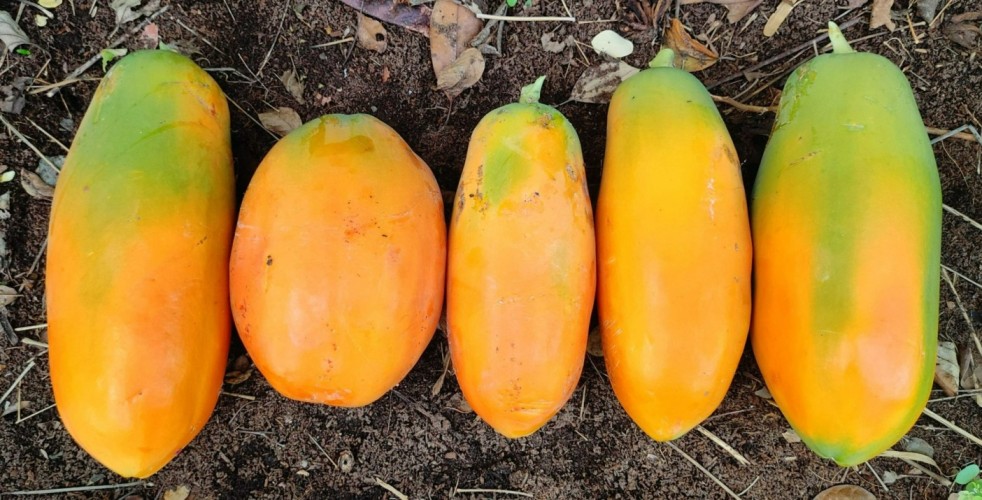
“My family, especially the children, love this fruit. I also share the fruit with my friends and neighbours. Even though there is only one tree, it is enough to feed a family,” he shares.
Here are some tips from the gardener to grow healthy papaya trees on a terrace:
- First and foremost, read about papaya gardening and find out which variety grows well given the local weather conditions. I would suggest red lady papaya which comes up fast and produces healthy fruits.
- Take a container/ drum/ pot which is at least two feet tall for planting the sapling.
- Fill it with a mix of soil, cocopeat, any organic fertiliser and wet sand, all in equal ratios.
- Usually, papaya faces no major pest attack. In case it happens, spray natural insecticides made of neem cake.
- Place the drum with the sapling in a non-windy area. Papaya trees can’t withstand wind and it will cause damage to their roots.
- Place them in an area where sufficient sunlight is received.
- Once a month provide two handfuls of any manure to the saplings. It can be vermicompost, cow dung or any other organic manure.
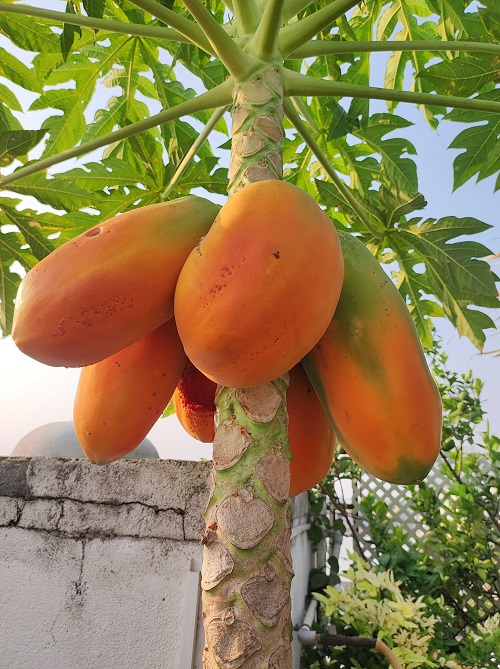
Additional tips:
- The leaves of papaya can be used as an insecticide. Soak neem cake and papaya leaves in cow urine for a month. Dilute it in water and spray it over the leaves.
- Watch out for ants and small pests on leaves. Take a close look at the plant once a week.
- Collect the saplings from experienced gardeners or garden nurseries.
- If possible, prepare your own compost at home using kitchen waste and dry leaves. This is excellent manure for all vegetables and fruits.
Edited by Yoshita Rao
All photo credits: Mythreyan N M
If you found our stories insightful, informative, or even just enjoyable, we invite you to consider making a voluntary payment to support the work we do at The Better India. Your contribution helps us continue producing quality content that educates, inspires, and drives positive change.
Choose one of the payment options below for your contribution-
By paying for the stories you value, you directly contribute to sustaining our efforts focused on making a difference in the world. Together, let's ensure that impactful stories continue to be told and shared, enriching lives and communities alike.
Thank you for your support. Here are some frequently asked questions you might find helpful to know why you are contributing?














